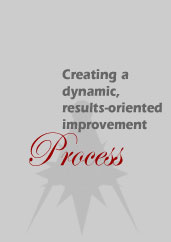


R
e s o u r c e s
>
Helpful articles and links

| Ten Obstacles to Successful Decision Making |
by:
Who & Date? |
What makes a good executive? If you measure it on the basis of an organization's performance, the ability to make the right decisions would be on the top of the list. If you want to improve the quality of your decision making, there are some traps you need to avoid, traps that aren't that uncommon. Like:
Jumping into the issue. Like a swimmer prior to diving into an unknown pool of water, you need to determine a little about the situation before you dive in. When it comes to making good decisions, that means taking a few minutes to consider the crux of the issue or, more basic yet, how you think the decision should be made before you even begin to gather information about it.
Being blind to the full situation. You can't begin to make a good decision until you have a clear idea of your objectives.
Lacking control of a process or problem. Problems arise if you allow yourself to be influenced by others' perspective of the problem or look at the problem from only a single perspective.
Acting without information. Your gut may be right, but you need to confirm your opinion with facts. Don't rely on assumptions and opinion.
Taking shortcuts. Reliance on too readily available information may offer no new viewpoints on a situation, leading to wrong interpretation of the situation and subsequently a wrong decision being made.
Winging it. Creating a sound model by which decisions will be made, and following that model each and every time for certain key decisions, improves the quality of decisions made.
Relying on the group. Just because you have assembled lots of talented people to engage in group decision-making doesn't ensure that the best decision is made. As sponsor of a group formed to address a problem, you need to oversee the quality of the process by which the group works.
Fooling yourself about results. You decided to test your decision via a pilot project. Do the results suggest you have made the right decision, or are you protecting your ego rather than admit you need to rethink your decision?
Failing to track results. Beyond the pilot test, you need to be monitoring the results of your decision to ensure it was the right one. Study of the results will also reveal lessons learned about your business or decision-making approach.
Examining your decision-making process. If you don't look at the means by which you handle decisions (the previous nine obstacles), you won't know where you fall short as a decision maker.